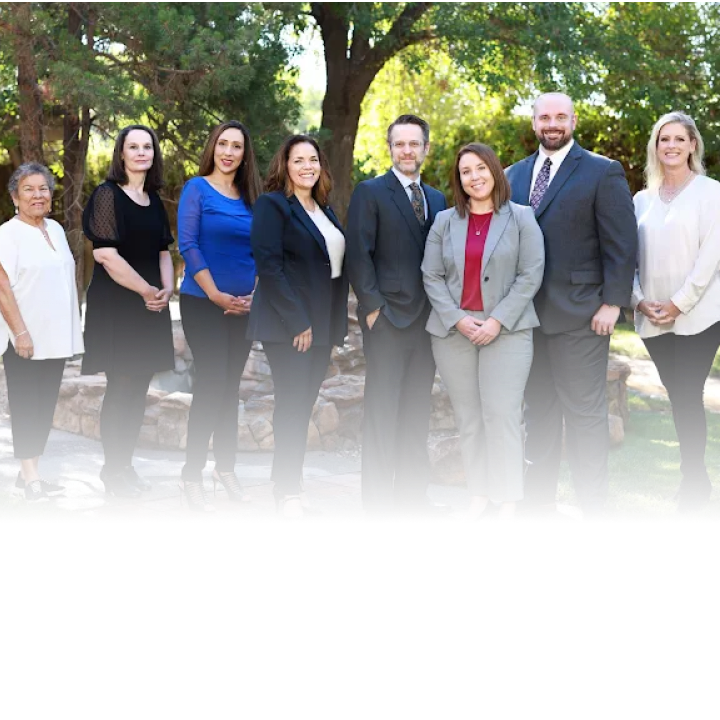
Albuquerque Child Custody Attorneys
Compassionate Advocacy for Families in Santa Fe
At Batley Riley Family Law, we understand how confusing and overwhelming it can be to navigate child custody matters. With so much at stake, having a knowledgeable child custody lawyer on your side is critical to safeguarding your family’s future. Since 1993, our attorneys have pursued favorable resolutions for couples and families in Albuquerque.
From requesting parenting plan modifications to litigating high-conflict disputes, our goal is to achieve the best possible outcome for you and your loved ones. We understand the personal and sensitive nature of these cases and are committed to providing strategic and compassionate advocacy. As an AAML fellow, our firm has extensive knowledge, resources, and experience to guide your legal steps with care.
Don’t face this stressful time alone, with our exclusive focus on family law, you can trust us to give your case the time and personalized attention it deserves.
If you’re preparing for a child custody case in Albuquerque or Santa Fe, we can advocate for a just resolution. Contact us online to request a case evaluation.




-
“This was the best lawyer-client experience ever! Through every aspect of the situation, they always kept me informed & consistently one step ahead of the opposition. Lauren & Nikki's assistance helped me to win custody being a full-time father with my son! Hopefully I won't need to use a lawyer again, but if I do, I will call Lauren @BFL first.”- Rick K.
Child Custody FAQs
-
There are two primary types of child custody in New Mexico. These include:
- Legal custody refers to the right to make important decisions about a child's upbringing, such as education, healthcare, and religion. Parents can share legal custody (joint), or one parent can have sole legal custody.
- Physical custody refers to where the child lives and which parent is responsible for daily care. Physical custody can also be joint or sole, depending on the arrangement approved by the court.
If a judge finds joint custody inappropriate, the court may award sole physical custody to one parent as the primary caretaker (the custodial parent). In most cases, the non-custodial parent receives visitation rights (referred to as timesharing) and may also share legal custody.
While family courts prefer to award joint legal custody when possible, shared legal custody does not necessarily mean that a child spends an equal amount of time with each parent. Seeking legal counsel is imperative to protect your parental rights and achieve a fair outcome.
-
Several variables can affect the outcome of child custody cases. Family courts may consider various factors to determine child custody arrangements, such as:
- The child’s best interests
- The wishes of both parents
- The child’s current living situation
- Mental and physical health of all parties
- The quality of the co-parenting relationship
- Any history of substance abuse or domestic abuse
- The child’s personal preference (for those over 14)
- The quality of the relationships between children, parents, and siblings
- The willingness of each parent to accept childcare responsibilities
- The child’s level of emotional well-being and social adjustment
- Each parent’s ability to provide for the child’s needs
- The geographic distance between parents
If the parents cannot reach an agreement, the child custody case will likely become more complex, expensive, and time-consuming, making it crucial to have a trusted lawyer on your side. The court may appoint a separate attorney or social worker to advocate for the child’s best interests and make recommendations to the judge.
At Batley Riley Family Law, we understand that child custody disputes can be emotionally charged and have long-lasting effects on the entire family, which is why we prioritize open communication and collaboration to address your unique needs. Our attorneys bring decades of experience to every case, giving you peace of mind that your child’s future is in trusted hands.
-
The timeframe for child custody cases depends on their complexity and the ability of both parties to reach an agreement. Uncontested cases may take weeks to resolve, while contested ones can take months.
At Batley Riley Family Law, we aim to reach custody resolutions efficiently while protecting your parental rights at every step. No matter your legal situation, you can trust us to prioritize the best interests of your family.
-
While child custody refers to the legal rights and responsibilities a parent has for their child, timesharing refers specifically to the schedule that outlines when the child spends time with each parent. Put simply, timesharing is the practical implementation of physical custody.
At Batley Riley Family Law, we take a multidisciplinary approach to pursue favorable resolutions in complex custody and timesharing cases. Our firm partners with professionals in various disciplines to provide comprehensive and individualized legal strategies for our clients.
-
Grandparents in New Mexico can seek custody or visitation rights under certain circumstances. Under NM Stat. § 40-9-2, a grandparent may be granted visitation if it is in the best interest of the child and one of the following applies: one parent is deceased, the parents are divorced or legally separated, or the child has lived with the grandparent for an extended period.
Grandparents may petition for custody if they have been the child’s primary caregiver or if both parents are deemed unfit. Courts will always prioritize what serves the child’s best interest when making these decisions. Our attorneys have a deep understanding of these legal complexities to advocate for your best interests in family court.
-
If your co-parent violates the terms of your custody agreement, they may held in contempt of court. Our attorneys can help you file a motion that requests the court to enforce the terms of your parenting plan and impose potential penalties. These may include fines, rescheduling visitation, or custody modifications in extreme cases (such as repeated violations).
-
It depends. Children’s preferences regrading custody may be considered if the court deems it age-appropriate. This typically applies to children who are at least 14 years old. However, the ultimate decision rests with the court and is based on the child’s best interests.

Your Life is
Unique & Complex
You shouldn’t settle for a one-size-fits-all approach.
You deserve a plan designed just for you.

How Can I Prove Unfit Parenting in a Custody Case?
To prove that a co-parent is unfit for custody, you must present clear and convincing evidence that their behavior puts your child’s health, safety, or emotional well-being at risk. Courts always prioritize the child’s best interests and require specific, documented concerns rather than general accusations.
Common scenarios that may constitute unfit parenting include:
- Criminal activity
- Substance abuse
- Child abuse or neglect
- Mental health concerns
- Unsafe living conditions
- Interference with parenting time
The court may also appoint a guardian ad litem or request a custody evaluation to further investigate parenting concerns. If you believe your co-parent is unfit for custody, our lawyers can help you gather evidence, file motions, and advocate for your child’s return to a safe and stable environment.
When it comes to protecting your family’s future, put a certified family law specialist on your side with Batley Riley Family Law. Call (505) 576-7296to schedule a consultation.


Why Choose Batley Riley Family Law?


-
We Are Committed to Your Success
-
We Empower You to Make the Right Choices
-
You Will Have Your Questions Answered
-
We Will Help You Find Your Way Forward




.2507020753051.png)







